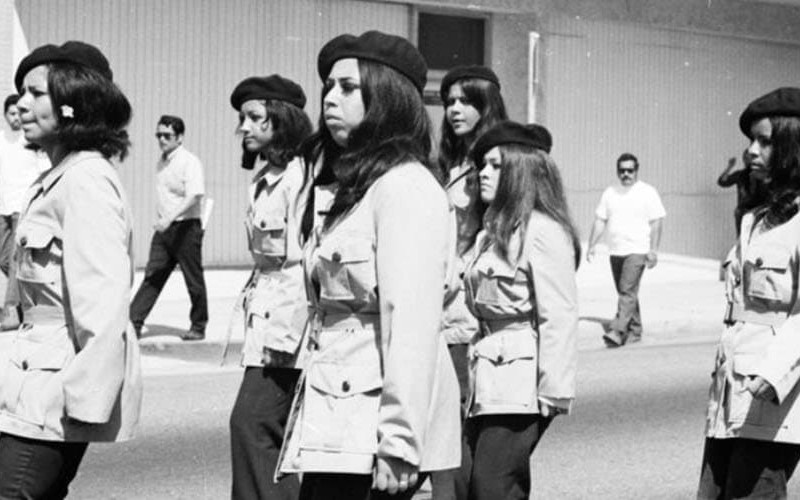Revolutionaries Reborn: The Story of Las Adelitas de Aztlan
Carrying on the legacy of their 1910s counterparts into the 1970s, these revolutionaries stood up for women’s reproductive rights and healthcare. Did you know that Las Adelitas de Aztlán revived the fighting spirit of the original Adelitas for a new purpose?

This article is part of a series developed in partnership with Project Pulso.
Born in the crucible of the American Civil Rights era, Las Adelitas de Aztlán emerged as a beacon of female empowerment in the Mexican American community. Inspired by the Adelitas, the courageous female soldiers of the Mexican Revolution, Gloria Arellanes, and sisters Gracie and Hilda Reyes, birthed this organization amidst the social turbulence of the 1970s.
These founders, seasoned veterans of the civil rights organization the Brown Berets, had witnessed firsthand the stark gender disparities within their ranks. Women’s pivotal contributions were relegated to secretarial roles, their voices often suppressed. This discontent echoed second-wave feminism sentiments, prompting the trio to establish an alternative, Las Adelitas de Aztlan.
(Courtesy of Project Pulso – for more Latine history, follow them on their Instagram @projectpulso).
Born and raised in East Los Angeles, Gloria Arellanes was no stranger to systemic racism and discrimination. Determined to address these injustices, she conceived an organization that could provide the much-needed structure, security, and community that numerous young Mexican Americans yearned for.
Though the Brown Berets had already made significant strides in advocating for Mexican-American civil rights, workers’ rights, and anti-war sentiments, Las Adelitas de Aztlan aimed to build upon this foundation. Drawing from the unique experiences of its founders, this emerging organization took on a broader mission: not only addressing societal issues but also actively promoting women’s rights within the Latino community.
Las Adelitas de Aztlán achieved remarkable progress in advancing women’s reproductive rights and healthcare. They passionately advocated for accessible birth control, abortion, sex education, and childcare. Much of their work in these areas was inspired by the founders’ previous experience of establishing free clinics, a legacy that originated during their time with the Brown Berets.

During the 1971 Conferencia de Mujeres por la Raza, which marked the inaugural National Chicana Conference, Las Adelitas de Aztlán played a pivotal role in illuminating gender discrimination and the significance of women’s roles. They emerged as a crucial voice, bringing attention to the frequently overlooked issues within the Mexican-American community.
Las Adelitas de Aztlán, not just an organization but a powerful platform, empowered Mexican-American women to challenge patriarchal norms, demand accountability, and advocate for equal access to education, politics, and social life. Their role extended beyond gender issues, as they also played a vital part in nurturing Chicano nationalism, which was crucial for the broader Chicano civil rights movement.
Through their name, they celebrated the strength, bravery, and independence of women, instilling cultural and historical pride. Their enduring contributions to the civil rights movement stand as a testament to the brave, unwavering spirit of Chicana and Latina women.




